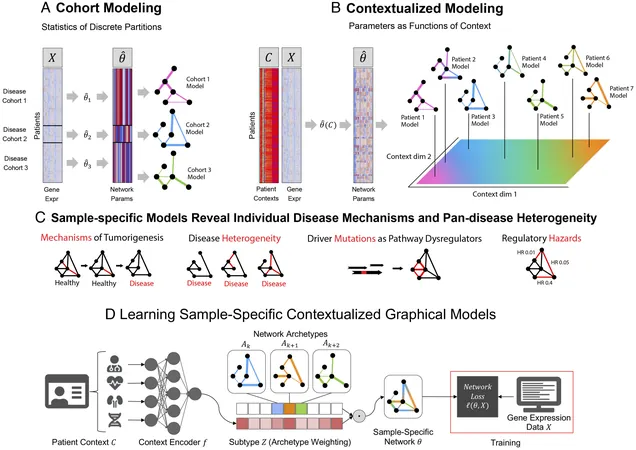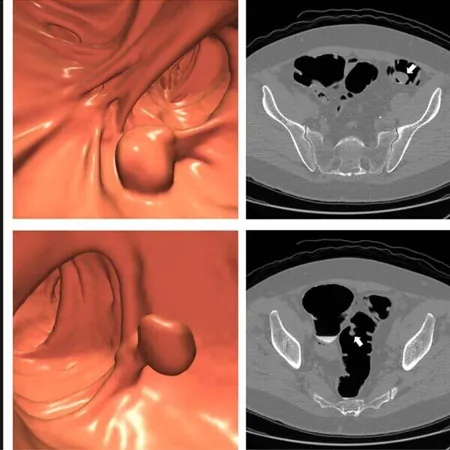
Revolutionizing Cancer Treatment: How Personalized Models Are Changing the Game
2025-05-29
Author: Wei Ling
A Breakthrough in Precision Medicine
Researchers at Carnegie Mellon University are on a mission to transform cancer treatment through personalized models that decode the unique behavior of cancer in individual patients. By uncovering hidden subtypes and improving survival predictions, this groundbreaking work is set to change the landscape of precision medicine forever.
The Challenge: Making Sense of Complex Data
Despite advancements in genomic data analysis, doctors still struggle to make tailored treatment decisions. Understanding how cancer behaves in each patient is a major hurdle. The CMU team has developed a cutting-edge approach aimed at bridging the gap between data and actionable insights.
Introducing Contextualized Modeling
Led by graduate student Caleb Ellington and Professor Eric P. Xing, the researchers introduced a technique called contextualized modeling in a recent publication in the Proceedings of the National Academy of Sciences. This method utilizes ultra-personalized machine learning models to build individualized gene networks for nearly 8,000 tumors spanning 25 different cancer types. The implications are huge: new insights into cancer biology and the ability to make better survival predictions, particularly for rare cancers.
Why Traditional Models Fall Short
Many existing modeling methods require large patient groups, which can obscure the unique characteristics of individual patients. According to Ellington, this leads to oversimplified models that don’t accurately reflect the complexities of diseases like cancer. Contextualized models tackle this problem by creating individualized analyses that consider a multitude of factors specific to each patient.
Harnessing the Power of Individuality
These models not only deliver better insights but also retain flexibility for predicting outcomes in new disease contexts. For instance, they can generate models for previously unseen tumor types, allowing researchers to stay ahead of emerging cancer variants. Ellington points out that this generative capability is a significant leap forward in modeling biology.
Unlocking Insights with Uncommon Cancers
One of the standout success stories of their research involves thyroid carcinoma, a disease often overlooked due to its generally favorable prognosis. The team’s model identified a rare, more aggressive form of the cancer, offering hope for developing targeted therapies.
Expanding the Horizon Beyond Cancer
Though the study focuses on cancer, the principles of contextualized modeling can enhance decision-making across various complex fields, from healthcare to environmental science. This method allows for incorporating diverse conditions and patient profiles into research, leading to richer insights and ultimately, better patient care.
Final Thoughts on Embracing Complexity
CMU’s researchers demonstrate that embracing complexity—rather than shying away from it—leads to more accurate models and better outcomes. By utilizing contextualized modeling, scientists can navigate the messy reality of real-world data while yielding insights that may help countless patients.


 Brasil (PT)
Brasil (PT)
 Canada (EN)
Canada (EN)
 Chile (ES)
Chile (ES)
 Česko (CS)
Česko (CS)
 대한민국 (KO)
대한민국 (KO)
 España (ES)
España (ES)
 France (FR)
France (FR)
 Hong Kong (EN)
Hong Kong (EN)
 Italia (IT)
Italia (IT)
 日本 (JA)
日本 (JA)
 Magyarország (HU)
Magyarország (HU)
 Norge (NO)
Norge (NO)
 Polska (PL)
Polska (PL)
 Schweiz (DE)
Schweiz (DE)
 Singapore (EN)
Singapore (EN)
 Sverige (SV)
Sverige (SV)
 Suomi (FI)
Suomi (FI)
 Türkiye (TR)
Türkiye (TR)
 الإمارات العربية المتحدة (AR)
الإمارات العربية المتحدة (AR)